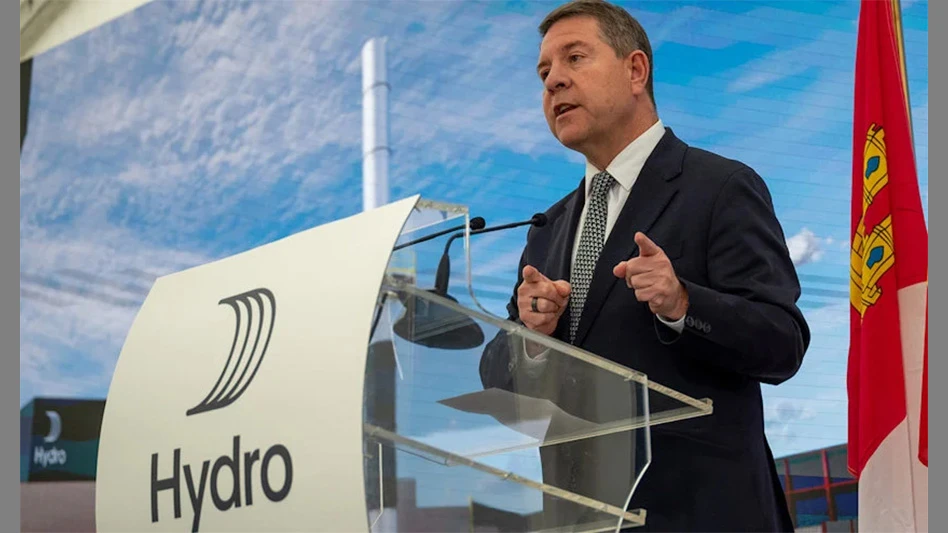
Photo by Jens Christian Boysen and courtesy of Hydro
Norwegian aluminum producer Norsk Hydro ASA has held a groundbreaking ceremony in Torija, Spain, for a facility that is the latest addition to its expanding recycling portfolio.
The firm intends to invest about 180 million euros ($197 million) at the site about 50 miles from Madrid it says will consume postconsumer aluminum scrap. It announced its intention to build the facility early last year.
“Aluminum scrap is energy in solid form,” says Hanne Simensen, executive vice president of Hydro Aluminium Metal. “We simply cannot afford to export such a valuable and strategic resource with European industrial competitiveness now severely affected by the lack of affordable energy. The new plant will strengthen our recycling capacity in the European market and save both energy and emissions.”
Hydro says the Torija plant will provide aluminum to industry sectors including transport and automotive, building and construction and energy.
With an annual production capacity of 120,000 metric tons of extrusion-grade ingots, it will complement output from Hydro’s nearby Azuqueca, Spain, plant, creating combined annual capacity of more than 200,000 metric tons of recycled-content aluminum, according to the firm.
Also on-site in Torija will be what Hydro calls advanced sorting technology that will help recycle up to 70,000 metric tons of postconsumer scrap annually to create “specialized alloys with the highest share of postconsumer recycled content in the market,” the company says.
“Torija will be a flagship plant with full automotive capabilities, ideally located to serve Iberian and other European customers,” Simensen adds.
“Equally important, the plant will have ample access to locally sourced scrap. This will provide significant value for our customers, create jobs and contribute to the circular economy.”
Hydro says the plant’s success can be abetted by closing what it calls loopholes in the European Union’s carbon border adjustment mechanism.
“Our investment in the Torija plant signals our strong commitment to circularity in the aluminum value chain,” Simensen says. “However, for more projects like this to thrive, we need clear policy frameworks that provide long-term certainty and give incentives to invest.”
Latest from Recycling Today
- Lautenbach Recycling names business development manager
- Sebright Products partners with German waste management equipment company
- WasteExpo transitions to biennial format for enhanced experiences
- Study highlights progress, challenges in meeting PCR goals for packaging
- Washington legislature passes EPR bill
- PureCycle makes progress on use of PureFive resin in film trials
- New copper alloy achieves unprecedented high-temperature performance
- Gränges boosts profits and sales volume in Q1 2025






